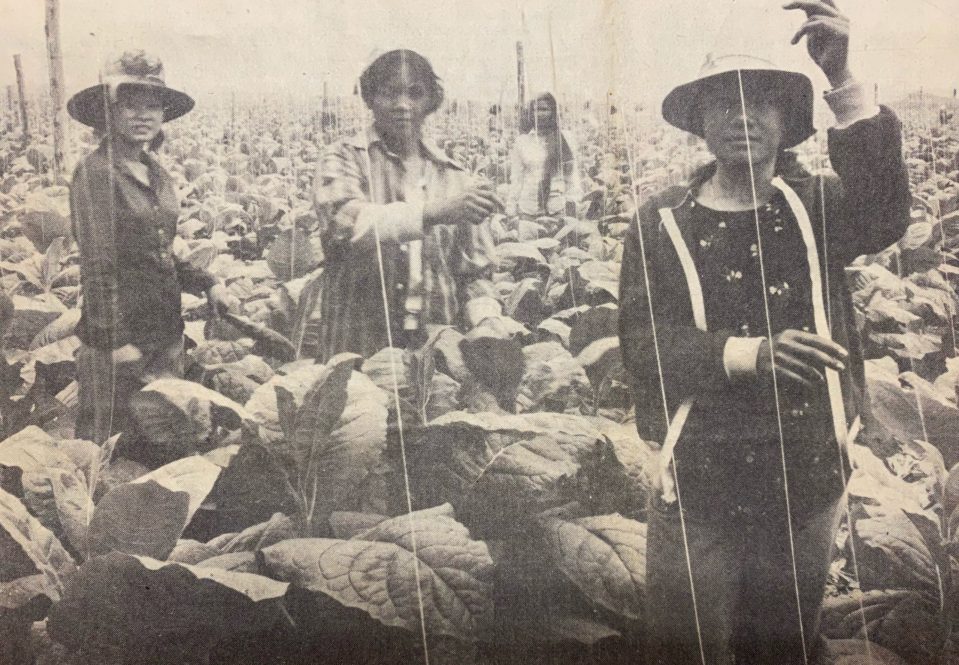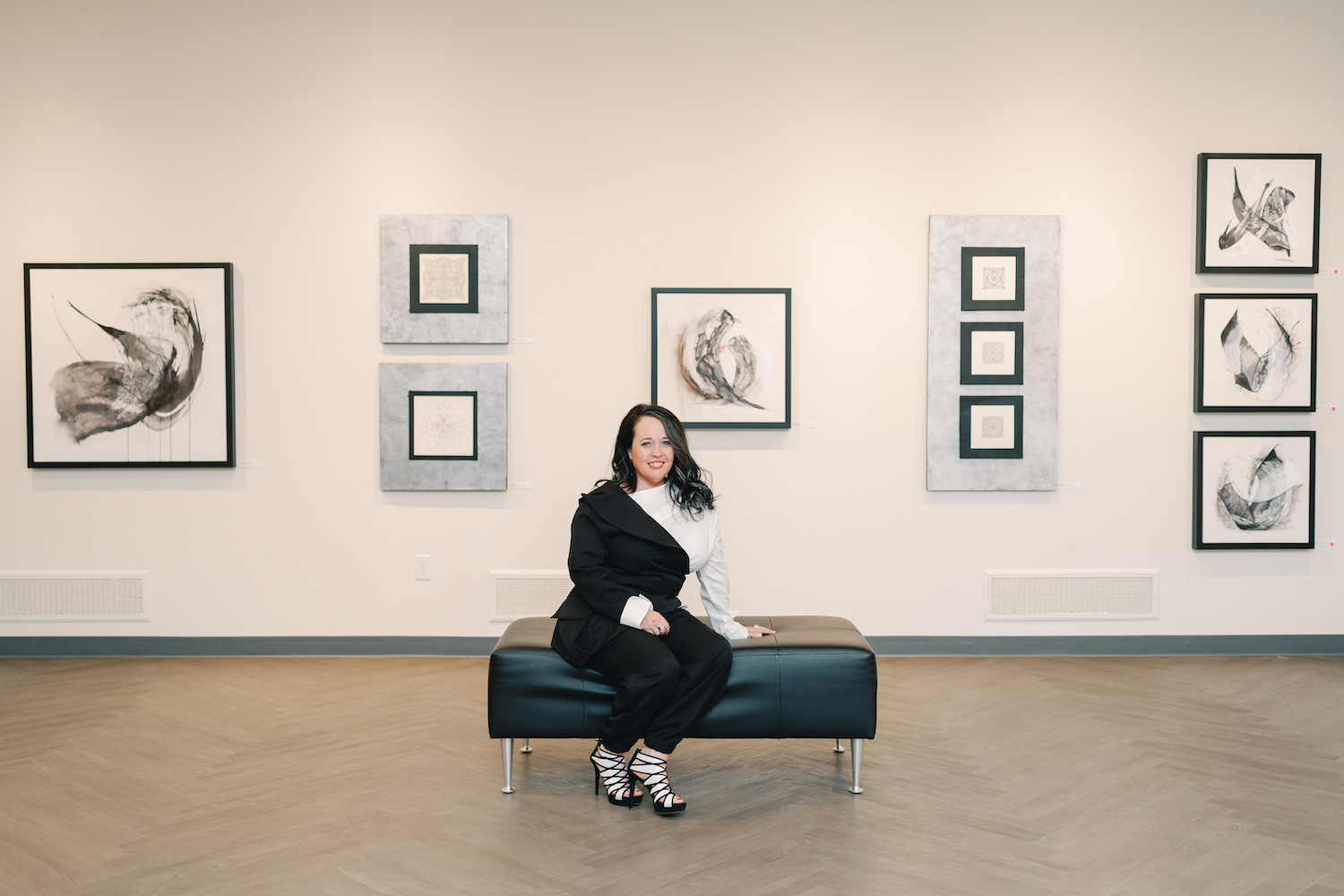Jolaade Kalinowski comes from what she calls a long line of strong Black women – women who have experienced adversity and life challenges, and who passed down to her the value and beauty of Black feminism, she says.
But with adversity comes stress, and Kalinowski’s family experienced emotional and economic hardship with the loss of her father when she was a child.
She watched her mother struggle to support the family, and that observation stuck with her to this day.
“I became fascinated by the role of stress and how it effects our behaviors and processes,” she says. That drive would later fuel her doctoral studies in health behavior and health disparities.
“I saw that Black women had the highest rate of hypertension in U.S.,” she continues. “And I thought, why aren’t more people talking about the stress of discrimination and its effect here?”
Kalinowski and more than 20 researchers in the College of Liberal Arts and Sciences are working in areas bringing issues of race and racism to the forefront of scholarly research.
She and her colleagues in the humanities, social sciences and sciences form an interdisciplinary group of scholars breaking the boundaries of traditional race studies.
Through approaches like health disparities research, rethinking geography, and fiction writing, they are pursuing paths that are unconventional even in a relatively new field.
“It’s important to look at challenges that are common and normalized that shouldn’t be,” says Kalinowski. “I have a moral obligation to do this work.”
Health Disparities for Black Women
Kalinowski’s research focuses broadly on the role of stress on the health of Black women in the context of cardiovascular disease.
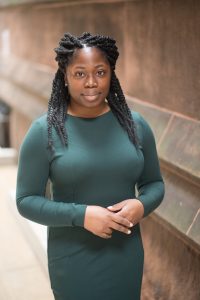
When she began her post-doctoral research, she realized that despite Black women showing high rates of hypertension in the U.S., and the known link between hypertension and cardiovascular disease, there were very few studies addressing this issue for Black women.
There were two main problems here, she thought. First: what stress factors contribute to this higher rate of hypertension? In other words, is stress influencing other health behaviors that can increase hypertension risk? Or is the stress itself causing the hypertension?
Second, what can be done about it? Can individual or community-scale interventions help to lower these rates?
At her most recent position as a postdoctoral fellow at the New York University School of Medicine, Kalinowski developed skills in behavioral health and cardiovascular epidemiology.
Her current studies look at biomarkers and qualitative stress measurements in women who have survived heart attack, to help understand the role of stress in their health.
Another study uses a mindfulness intervention in Black women with elevated blood pressure to determine whether a reduction in daily stress can mitigate risk of cardiovascular disease.
She hopes that her work will help bring women’s issues, and in particular Black women’s issues, more exposure in the medical community. Further, she plans to mentor rising generations of Black women in research.
“There weren’t – and still aren’t – a lot of examples of black women researchers,” she says.
#IAmNotAVirus
When the COVID-19 virus expanded across the globe in early 2020, sentiments expressed by world leaders, including then-president Donald Trump, spurred a wave of anti-Asian sentiment in America.
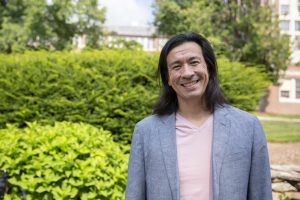
Jason Oliver Chang, director of the Asian and Asian American Studies Institute and associate professor of history, moved into action, speaking with the press and organizing within local communities.
“We felt like we were saying the same things to the media over and over,” he recalls. “Asians of all types became ‘Chinese’ and became victimized. Reports asked, why is this happening? Why is racism against Asians suddenly rearing its head?”
So Chang and his Institute colleagues went to work with community partners. He worked with photographer Mike Keo to found the successful #IAmNotAVirus Instagram portrait campaign, to humanize the lives of Asian and Asian Americans in order to combat anti- Asian sentiment. Keo then became the Institute’s first Activist-in-Residence, and he and Change to co-create and publicize a document of safety resources for the black, indigenous, and people of color (BIPOC) community on college campuses. They also created a mental health workbook for Asian Americans, in collaboration with the Asian American Literary Review
As a minority group in the United States, Asian Americans experience a double-edged sword of racism, says Chang. Some communities are seen as dangerous, with a “yellow peril” mentality; while others are held up as an ideal for immigrants, or a “model minority.”
Both stereotypes are harmful, he says, not only to Asian Americans, but to everyone.
Chang’s recent work has taken a turn to the local with a focus on the rise of tobacco plantations across Connecticut, where, with colleague Fiona Vernal, associate professor of history and affiliate of the Africana Studies Institute, he has begun documenting the history of tobacco plantations in the state, and how they have intersected with different minority groups.
“People automatically associate plantations with slavery and the South,” Chang says. “But they are part of the fabric of Connecticut and the Northeast, too. Black workers from the South and the Caribbean traveled to work these plantations each summer, but less known are Asian workers from Boston in the 1940s and Southeast Asian refugees beginning in the 1980s also worked these plantations.”
With Vernal, Chang received a grant from the New England Humanities Consortium for their project, titled Shade: Labor Diasporas, Tobacco, Mobility, and the Urban Nexus, which examines the relatively unknown history and evolution of settler and tobacco labor culture in the Connecticut River valley.
“Plantations in Connecticut exist in a mythical space, yet the reality is that they have shaped who calls Connecticut home. Telling this story reveals the racialization of Hartford as a Black, Brown, and Asian American city and how it has dealt over the years with its race issues,” notes Chang.
If there’s one thing this year has made clear to him, he says, it’s that Asian and Asian American Studies needs to work more on community organizing and policy. To that end, Chang is leading the charge to bring Asian American and Pacific Islander studies to Connecticut High Schools through new policy in this legislative session.
“This year has signaled to me that what we were doing before this is not adequate,” he says. “Scholarly outputs alone aren’t having the impact that we want them to. We need to have stronger relationships with communities and direct energies into public-facing work.”
A Speculative History
Dexter Gabriel was clad in his academic regalia and walking to his graduation ceremony to receive his Ph.D. when he got the news that he’d just had his first really big publication.
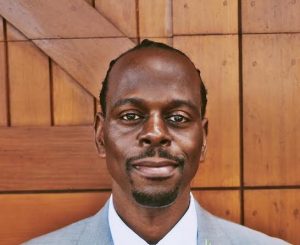
But it wasn’t a scholarly paper or monograph. It was a story, and it had been accepted at Tor, once of the most prominent speculative fiction – including sci-fi, fantasy, horror and alternate history – publishers in the world.
Until then, he says, he’d not really seen a likeness between his scholarly historical work, on the history and geography of activism in the U.S. abolitionist movement, and his speculative fiction work, which he mostly did as a hobby. But he began to see the parallels.
“When we have gaps and silences in history, we speculate,” says Gabriel, assistant professor of history and faculty affiliate of the Africana Studies Institute. “So in a sense, they influenced each other.”
For awhile, Gabriel kept his scholarly and creative writing worlds apart, using the pseudonym P. Djèlí Clark to publish fiction.
“I would finish some academic work, then reward myself by sitting down and writing a story,” he says. “I’d send off a story, then forget about it.”
He worked steadily over the years, gaining more publications and several awards. But after the publication of his novella, Ring Shout, in October 2020, things have changed for the Queens native.
The New York Times Editor’s Choice book follows Maryse, a monster hunter in a dystopian Jim Crow South where the Ku Klux Klan includes literal demons summoned by human members of Klan. The publication is currently in development as a television series with producer Skydance Media, known for its production on Star Trek, Terminator and Mission:Impossible films.
“Technically I’m an executive producer, but I don’t really know what that means,” jokes Gabriel.
For his academic work, Gabriel is especially interested in historical celebrations of emancipations – for example, an annual celebration of the emancipation of enslaved people in the British Caribbean celebrated each year in Massachusetts – as activist events.
He hopes to create an interactive map of these events, so they can be recognized as historically significant places and studied further to help understand how activist movement work.
This year, Gabriel was set to use a fellowship at the Massachusetts Historical Society to work on this project, but has had some difficulty accessing materials because of COVID-19, However, he has been working slowly through what he calls “the wonderful world of interlibrary loan.”
While he waits until he can access the archives, Gabriel is watching his novel resonate with people in ways he never expected. One reviewer for National Public Radio wrote: “The only thing Clark does better than dialogue in here is the body horror, with images and beasts Guillermo del Toro would fall all over himself to help create on screen.”
And many fans have likened a scene from the book to the January insurgency at the U.S. Capitol. Gabriel sees this as a coincidence, but notes that this is the importance of fiction in helping us understand our own history.
“Lots of different things can make us think about how history is written,” he says.
This article is the first in a series about emerging research areas in UConn’s College of Liberal Arts and Sciences. Learn more at #DiscoverUConnCLAS.
